PCB Overheating Due to Design Flaw
Gideon Analytical Laboratories received several SVAA-3V25 relays for failure analysis. These solid state relays have a control voltage range between 100 VAC and 280 VAC, a load voltage rating of 330 V, and a load current rating of 25 A. Solid state relays are ideal for industrial and commercial ovens, injection molding machines, and induction furnaces, and many other applications. The goal was to find the cause of the failures.
The damaged portion was always on the input side emanating from pin 3, and since the capacitors were shortened, this drew excessive current from pin 3, further exacerbating any preconditions. The damage is shown in the picture at the top left. The failures were cross-sectioned to determine whether or not cracks were present. Multiple cracks were found, one of which is seen in the picture at the bottom right.
Upon final analysis, Gideon Analytical Laboratories discovered that the capacitors were cracked, and leakage current across the crack provided an excessive current draw on pin 4 which further exacerbated the crack mechanism on the capacitors. The capacitors are susceptible to cracking if pin 4 is pushed inward or the PCB is in any way twisted. This may have happened at the assembly level or by torquing the screw down against the relay cover. The cause of this problem was in production and not in application.
With failure analysis performed by Gideon Analytical Laboratories, electronics companies can receive extremely accurate and candid results about how and why electronics devices fail. This information can prove invaluable when planning for future business.
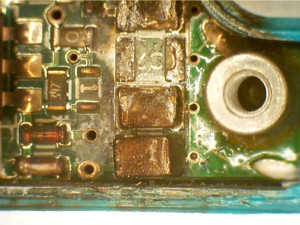
Bank capacitors
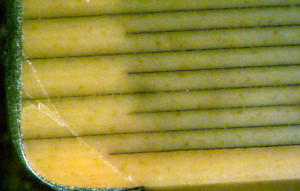
Terminal cracks lead to further leakage
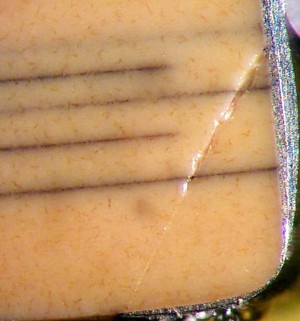
Cross sectioned relay; cracks
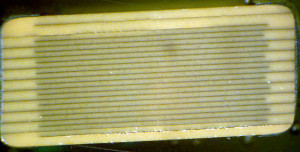
No cracks in the unused samples
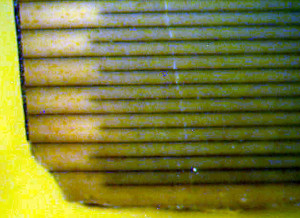
Torquing of board causing severing ceramic